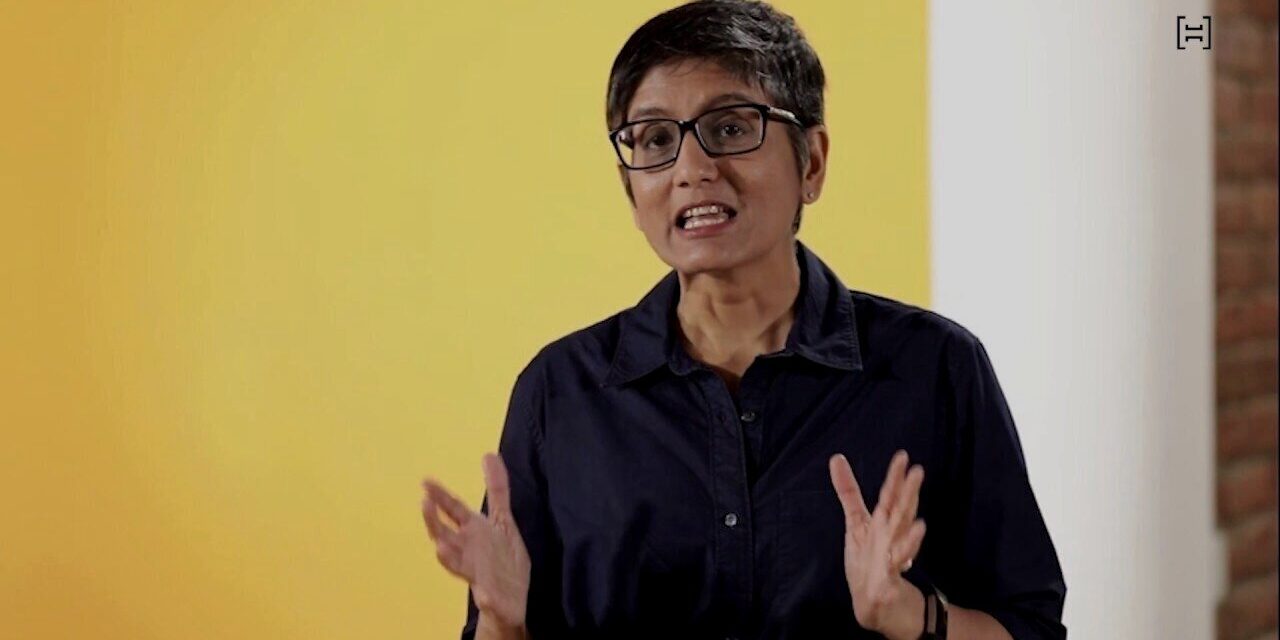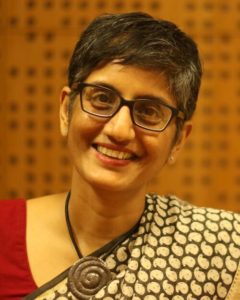
1. Tell us something we don’t know. (Anything!)
I recently learned that a gomesi is a traditional dress in Uganda (singer Alicia Keys apparently wore one in 2007 when she visited Uganda). I have a close Indian friend with the last name Gomes and was delighted to find that there is indeed a connection. Apparently, it was introduced in Uganda by an Indian Goan designer named Caetano Gomes! Of course, I would love some more verification of this but I love stories like this which are testament to the human spirit of global adventure and adaptation.
2. Which fiction book would you recommend to researchers and innovators in healthcare, and why?
The Calcutta Chromosome by Amitav Ghosh is a classic. It introduced me to Sir Ronald Ross, the malaria researcher in 1897. It actually inspired me to go in for a PhD (though not in healthcare but in marketing!) and every once in a while I go back to it and it always thrills me with the passion for research that’s so evident in the beautiful writing and cracking good story!
3. What are you working on right now that you’re excited about?
I’m excited by the promise of expanding behavioral science to solve complex problems, particularly in the Global South. The Global South has 80% of the world’s population and yet most of what we know about human behavior comes from research in the Global North – North America, Europe, Australia & New Zealand, Israel. Having grown up and having worked in India, I want to see more behavioral science in that part of the world. So I love the work I do with the Surgo Foundation to leverage data & behavioral science in pursuit of solving complex health challenges like getting people to early screenings for TB in India. Or when other organizations I advise like the Busara Center for Behavioral Economics have strong roots in Africa and are striking up South-South partnerships in India, the Middle East and expanding behavioral science for poverty alleviation. Most recently, my co-author, Sakshi Ghai and I collaborated with 15 behavioral scientists in Africa, Latin America, the Middle East and South and East Asia to highlight challenges of the Covid-19 crisis, which was published in the Behavioral Scientist magazine. I love amplifying work that is already happening and building bridges from North to South!
4. Who’s doing something that you admire in healthcare today, and why is it so cool?
I am a huge fan of what organizations like Living Goods and Last Mile Health are doing – digitally empowering community health workers in Africa to provide affordable, high quality care in areas where healthcare was not easily available previously. When you think of the wealth of talent & the dedication of community health workers in the Global South and marry that to thoughtful technology and training in the service of reducing suffering for some of the poorest people on the planet – I can’t think of anything more incredible!
5. What’s the biggest barrier to getting things done in your line of work?
I’m currently an independent consultant and while it provides an incredible view of problems, I struggle with the idea that I’m not the one leading implementation and getting things done. But when I am in an implementation role, I struggle with the lack of time to strategically think through a problem. I guess I am still trying to find the perfect balance!
6. Imagine you win an award for impacting healthcare. What did you do?
Led a program that saved at least 1 MM children under 5 from common diseases like malaria and diarrhea.
7. What advice would you give innovators in healthcare?
Collaborate widely, particularly cross-country. At the moment, there are amazing innovations all across the world and we need to share them more widely and learn from them.
More about Neela Saldanha

Neela is an independent consultant. She is currently a Senior Advisor at the Busara Center for Behavioral Economics, a research and advisory firm dedicated to advancing and applying behavioral science in the Global South, and a Behavior Change Consultant at the Surgo Foundation where she helps design and test behavioral interventions across the globe. Neela loves to use her marketing and behavioral science skills on challenging problems of poverty alleviation: public health, financial inclusion and charitable giving. Before this, she was the founding Director of the Centre for Social and Behaviour Change at Ashoka University (CSBC) at Ashoka University in India, a centre funded by the Bill & Melinda Gates Foundation with the mission of designing, advancing and enabling evidence-led communication interventions for low-income & marginalized populations in India. Neela has more than fifteen years of experience in the private sector across consumer insights, branding, strategy consulting and sales. She has led teams in strategy consulting, consumer insights, branding & innovation and behavioral science across multinationals such as Nestle, Unilever and PepsiCo and with strategy consulting firm Accenture. She has extensive work experience in India and in global teams in the US. Neela has a PhD in Marketing (Consumer Psychology) from The Wharton School, University of Pennsylvania and an MBA from the Indian Institute of Management Calcutta (IIM-C), India. She is also a board member of The Life You Can Save, the organization founded by Peter Singer, that inspires and empowers people to take action in the fight against global poverty.